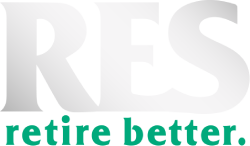FAQ
Top Questions and Answers to Myths About Reverse Mortgages
Will the bank own my home?
No. You or your estate will continue to retain ownership of your home’s title, just like you do now. Your lender’s claim on the property is limited to a lien for the outstanding loan balance.
Will I just be passing along debt to my children?
No. The HECM reverse mortgage loan is a non-recourse loan insured by the FHA. If your home depreciates, and the amount of the loan exceeds your home’s value, the FHA insures the balance owed. If the home value is upside down, only the proceeds from the sale of the home can be taken to pay the loan balance. Anything remaining would be covered by the FHA insurance.
Can the loan terms change?
No. The terms of the loan are defined at closing and cannot be changed as long as the deed remains in force.
If I choose a reverse mortgage, can I still choose to sell my home?
Absolutely. A reverse mortgage loan is just like any other loan. If you sell your home, the reverse mortgage will be repaid with the proceeds of the sale.
Do I need to make monthly mortgage payments?
No. There are no required monthly mortgage payments. You can choose to make a payment at any time but there are no monthly mortgage payments due. As the borrower, you’re responsible for the payment of property taxes, insurance, any HOA dues, and general upkeep of the home.
How are the fees and interest rates calculated for the reverse mortgage?
The fees are tied to fixed or variable rates and based on an index and a margin. One of the specialists from our team can work with you to calculate your exact fees and rates based on the loan options you choose.
What happens if I outlive the loan?
The loan is not due as long as you live in the home as your primary residence, continue to pay your property taxes, insurance, and maintain the home. If you fulfill these obligations, you may continue to live in the home as long as you wish without making any monthly mortgage payments.
What happens to the house after I pass away?
When you pass, the title of the home remains in your name and your heirs will have 6 to 12 months to refinance, pay off the loan, or sell the home. Any remaining equity after the sale or refinance will go to your heirs. The mortgage insurance protects the estate from owing more than what the home is worth at the time the loan becomes due and payable.
Where can I receive reverse-mortgage loan counseling?
Before obtaining a reverse mortgage, you must undergo reverse-mortgage counseling, which can be completed over the phone in some cases. HUD’s Housing Counseling Program provides advice about financing, maintaining, renting or owning a home. You can find a list of HUD-approved counseling agencies near you on HUD’s website or call Magnolia Bank for a list of agencies near you.
Over what length of time are loan proceeds distributed?
The length of the loan depends on the way in which you choose to access the loan proceeds. You can access proceeds in one lump sum, in a line of credit, or in monthly installments for a set term or for as long as you live in the home. A Retirement Equity Solutions professional will walk you through your options to determine the best fit for you.
Are there any risks associated with getting a reverse mortgage loan?
Once you obtain a reverse mortgage loan and use all the funds, you may not be able to obtain another reverse mortgage loan depending on circumstances, such as the amount of equity left in your property. Obtaining a reverse mortgage loan early into retirement may impact your ability to access funds later in retirement.
What is a reverse mortgage loan?
A reverse mortgage is one of the only financial tools that it offers borrowers the ability to access their home equity without the burden of monthly mortgage payments. You still have to pay your property taxes, homeowners’ insurance, any homeowner association dues, and maintain the home. Among many other uses, a reverse mortgage can be used to increase cashflow, supplement income, strengthen a retirement portfolio, and pay outstanding bills or expenses.
How do I receive my funds?
Reverse mortgage loan funds can be disbursed in a full or partial lump sum, as a line of credit, through monthly payments ““ or as a combination of any of these. The pay-out of funds can be structured in several different ways, depending on what makes the most sense for your specific situation.
What can I use my reverse mortgage funds for?
Your funds can be used for just about anything. Some of the most common uses include:
- Paying off existing mortgages (required)
- Increasing monthly cashflow
- Paying for medical bills
- Paying other debts, credit cards, and bills
- Home repair and improvement expenses
- Paying property taxes and home insurance
- Supplementing your retirement portfolio
- Deferring Social-Security payments in order to qualify for maximum benefits
- Traveling
- Helping family members and spoiling grandchildren
- Having fun and enjoying retirement
Is there any risk of losing my home with a reverse mortgage?
With a reverse mortgage, you still own your home ““ just like you do with any other type of mortgage. As long as you continue to fulfill the obligations of the loan, which include occupying your home as your primary residence, paying your property taxes, homeowners insurance, any HOA dues and keeping up with basic maintenance and repairs. If you fulfill these obligations, your loan remains in good standing. However, if you don’t uphold these responsibilities, the loan may become due, and the house may be sold to pay off the loan.
How does my loan need to be repaid?
A reverse mortgage is repaid when the last borrower (or even the last eligible non-borrowing spouse) leaves the house or passes away. There are several options available to repay the reverse mortgage. The home can be sold and the proceeds from the sale can be used to repay the loan. In this instance, the heirs will receive any remaining equity. If your heirs decide to keep the home, they can pay back the loan in other ways such as by refinancing into a conventional loan.
What happens if my home gains value?
If the value of your home increases, your equity increases. Any equity left after paying off the reverse mortgage belongs to you or your heirs. If there is a significant increase in value, you can refinance to withdraw more of the equity in the home. And if the home is sold to repay the loan after you pass away or decide to leave, more funds will be left over for you or your heirs.
Are reverse mortgages only an option of last resort?
No, this is a common misconception. In fact, when used properly as part of an overall retirement income strategy, reverse mortgages can be a smart financial planning tool. Increasing cashflow, strengthening your retirement portfolio, or building access to funds at a later date are some of the ways you can use a reverse mortgage to enhance your retirement. In the last several years, retirement researchers and financial advisors have begun to embrace the use of reverse mortgages in retirement income planning.
How much money can I qualify for?
The amount of money you can receive from a reverse mortgage depends on four factors:
- Your home value (based on an appraisal that will be part of the loan process)
- Your age
- Your interest rate
- Your current mortgage balance (you must use the proceeds to pay off your existing mortgage.)
If I get a reverse mortgage loan now, will I be able to access this again in the future?
The timing of when you get a reverse mortgage loan and how you use it is an individual decision which should be made by looking at overall circumstances and situation. If you take a reverse mortgage now and use all your available funds you would only be able to access additional funds if your property value increased substantially and you were eligible to refinance into larger reverse mortgage. However, if you took a reverse mortgage now and did not use all of the funds your available funds would increase over time, so it is best to weigh your options based upon your individual situation.
Will a reverse mortgage affect my Social Security, Medicare or pension benefits?
No, these benefits will not be impacted. Funds from a reverse mortgage are considered loan proceeds and not income. In fact, by delaying the need to begin accessing your Social-Security benefits, a reverse mortgage could ultimately increase the amount of benefits you’re eligible to receive each month. However, in some cases need-based benefits could be affected ““ such as Medicaid or Supplemental Security Income ““ since the proceeds from a reverse mortgage improve your monthly cashflow.
What if the loan amount ends up exceeding the value of my home?
Reverse mortgages are non-recourse loans, which limits your heirs’ liability. After the last borrower leaves the home, the proceeds from the sale of the property are the only asset that can be used to pay the loan’s balance. If the loan’s balance ends up surpassing the value of the home, the difference is covered by the Federal Housing Administration’s (FHA) insurance fund. However, if your heirs wish to keep the home, they may choose to do so by paying off the loan in full.



